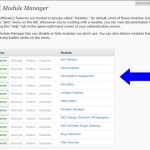While I would love to say that there is a definitive SEO Magic Bullet, much to my dismay, and the dismay of millions seeking first page results, there isn’t.
While SEO is extremely effective for pushing competitors websites aside (as if by magic), what goes on behind the scenes is often layers of meticulously crafted strategies tactfully rolled-out over time.
Before you buy in to the hype from companies selling SEO services on the cheap, here are some interesting tidbits you should be aware of …
Fact: Creating Rankings Takes Time
Sure, you can create ranking factor quickly (with a couple of weeks to a couple of months) for what we call low hanging fruit keywords, i.e., keywords that are less competitive and easy to rank for but typically have less search volume.
However, knocking out the more competitive broad level key phrases (which have millions of websites competing for them) takes time. How much time it will take to reach page one depends on two things (1) your competition and (2) your own website’s authority (meaning how authoritative or useful it is) which is decided by (a) the quality and volume of content on the subject present in the site and (b) how many other websites link to or cite your website.
There are various species of keywords, each with their own respective thresholds and corresponding barrier to entry. While I could go on and on about this point, Russell Wright from ThemeZoom summarized it perfectly by stating that – “Popular keywords are more expensive and more competitive than any other keywords”.
This is the unspoken truth of SEO and the primary most critical metric challenging anyone involved in an SEO campaign, particularly if the keywords they are targeting are “the most popular keywords” in a vast/ potential cluster of keywords that could all actually deliver traffic, sales or results.
Fact: All Keywords Do Not Convert!
Keywords are a means to an end based on user behavior and just as no two people think alike, no two people search alike (which is a good thing if you play into that diversity). If you choose the wrong keywords, something horrible happens, nothing.
You can have the number one ranking for a keyword dud and never see revenue from it (since nobody is searching for it). So, understand that while rankings are a metric, context, relevance and popularity as a lexical meaning are imperative (to ensure there is a distinct connection between what you offer and what visitors are looking for).
By understanding the underlying nodal tones of emotion and how they translate into various keyword modifiers (words surrounding other words that assist in zeroing in specific user intent) when someone is searching for a product, service or solution – you can tailor a message specifically for that user, to reach them when they search using critical keywords.
This means that at any given time a user may hit your website with an intended keyword (which you can track, measure and determine how effective that keyword is for conversion) or, on the contrary, a visitor may use an unknown or unintentional keyword combination / search query and based on overlapping nodes of relevance, content or links to your website, a search engine may select your website as an ideal destination.
This means, that in order to create an effective SEO campaign, you must anticipate the more common/popular keywords while taking into account their contextual meaning which is a subjective metric that changes based on who is searching, including variables such as their demographic profile, their psycho graphic profile, the sales funnel presented and the visitors immediate emotional needs.
People interested in making a purchase online tend to use different keywords (that harbor a sense of distinct urgency) instead of those merely interested in an inquiry.
In SEO jargon, we refer to this as browsers vs. buyers. Here is an excellent example of the two different types of visitors and how to reach them using modifiers for affiliate marketing.
Learning how to distinguish behavioral nodes within keywords and built corresponding layers of educational and commercial queries into your website content, internal links, titles, supporting pages or inbound links is what separates SEO rookies from SEO professionals.
Professionals understand (and track conversions) from traffic sources, keywords and use various cues to vet less effective keywords and focus primarily on high converting keywords regardless of their respective barriers to entry).
Fact:You Need a Minimum of 200 Impressions Per Day to Monetize Your Website
Call it a numbers game, the law of averages or whatever tickles your fancy, either way, you’ll need numbers, i.e. visitors to facilitate conversion.While you could gain conversions with less traffic, the gist is simple, the more qualified visitors that reach your website, the more conversions can potentially occur.
Conversions (sales, opt-ins or leads from a website) are based on two things.
1) Getting enough traffic to the website or page – and –
2) Getting the visitor to take action once they reach that page.
Without enough traffic or enough conversion from that traffic, it will not matter what you are selling, which website you have or what keywords the website is optimized for.
This is why the quality of the landing page is equally as important as the keywords used to send traffic to the website (either organic or paid). This is why choosing keywords that have a higher propensity for conversion are integral for long-term success online.
Court Tuttle breaks it down perfectly in his Ebook on how to monetize your website, which you can download here – How to Really Make $5,000 Per Month Online.
For example, he explains that –“If your goal is to make $5,000 per month, you have to get 167 clicks per day that are worth $1 each. From experience, I know that I can plan that at least 5-10% of my visitors will click one of my ads. This means that I need to get around 20 people onto my site to get ‘a precious click’”.
Court goes on to elaborate as he breaks out the methods for monetizing a website based on the percentage of click through traffic for a keyword, the CPC (cost per click) for that keyword and how much potential Adsense revenue you can generate from owning a #1 position for a keyword.
Also, it’s about positioning your website between people that are looking to buy traffic and those looking to buy products. After identifying profitable keywords, then you can scale your keyword acquisition and corresponding landing page options.
Repeat this enough with enough keywords or websites and scale the result and you can create a virtual empire of monetized keywords or websites to yield advertising revenue from.
In conclusion, covering the three basic fundamentals of SEO:
- Creating Rankings is a Process That Takes Time
- All Keywords Do Not Convert – and-
- You Need Enough Traffic to Facilitate Conversion
You now have a more realistic premise in which to build a strategic online asset. There is no SEO magic bullet, just (1) selective keyword and market research (2) intelligent application of that research (3) authoritative contextual relevance created by supporting pages or emotionally charged landing pages and (4) enough links/citation from other websites to cross the tipping point in search engines to award page or domain authority.
So, don’t be fooled by claims from cheap SEO providers promising snake oil for a few hundred dollars a month. Lucrative keywords take thousands of dollars to capture (from content, time or links) of if you do it all yourself, it’s just your time.
In either case, SEO is an investment and nothing converts like search engine traffic, so, it’s a matter of which keywords you can afford to target, the time you have and how you intend to monetize that traffic once you get it.












So true. SEO is a long term building process. It doesn’t work magically overnight. No agency can guarantee rankings. If they do, run away.
Another consideration (ranking for useless keywords) which yield less than favorable results. This is not SEO, its a waste of time. Low hanging fruit is not a target, it is a side benefit, so, make sure to start with some phrases that will at least deliver 2 or more actual visitors per day and focus on “effective keywords” that have delivered traffic once people do arrive.
There is nothing worse than ignoring the reality of which keywords are responsible for visitors hitting your site, digging through a few pages, then converting.
If you have tunnel vision and only look where you’re expecting to see conversion, you are leaving money on the table (when you could merely expand on keywords that are working)…
Great post you have here… You have some very strong points and I totally agree with it… It is a very good read and a great source of information… Thanks for sharing…
I agree that rankings take time. Sometimes months. Clients don’t always understand that.
You can rank VERY FAST for easy keywords. But very competitive keywords take time.
– D.D.